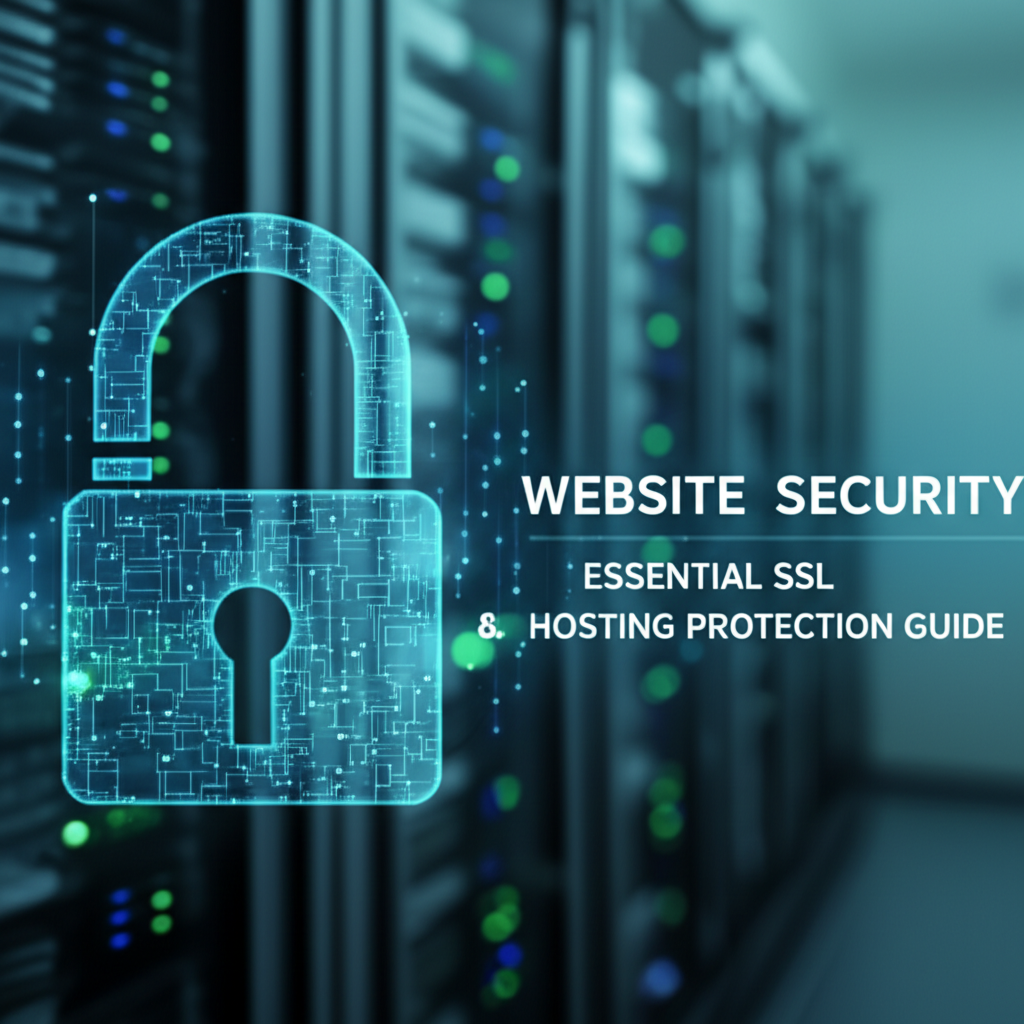- Understanding the Importance of Website Security
- Why Website Security Matters for Your Business
- SSL Certificates: The Foundation of Website Security
- Choosing the Right SSL Certificate
- Hosting Protection: Securing Your Server Environment
- Key Aspects of Hosting Protection
- Implementing Website Security Best Practices
Website Security: Essential SSL & Hosting Protection Guide
Website security is paramount in today’s digital landscape. A secure website protects your sensitive data, builds trust with your visitors, and improves your search engine rankings. This comprehensive guide delves into two crucial aspects of website security: SSL certificates and robust hosting protection. Understanding and implementing these measures is essential for safeguarding your online presence.
Understanding the Importance of Website Security
In an era where cyber threats are constantly evolving, website security isn’t just a recommendation—it’s a necessity. For businesses, a security breach can lead to devastating consequences, including financial losses, reputational damage, and legal repercussions. For individuals, compromised websites can lead to identity theft, data breaches, and malware infections. Implementing proper security measures mitigates these risks and ensures a safe online experience for everyone.
Why Website Security Matters for Your Business
Protects Customer Data: Handling sensitive customer information, such as credit card details and personal data, requires a secure environment. Robust website security safeguards this data from unauthorized access and builds trust with your customers.
Boosts SEO Rankings: Search engines like Google prioritize secure websites. Having a valid SSL certificate and implementing other security measures can significantly improve your search engine rankings, leading to increased visibility and organic traffic.
Enhances Brand Reputation: A security breach can severely damage your brand’s reputation. Customers are less likely to trust a website that has been compromised. Prioritizing website security demonstrates your commitment to protecting your users and builds confidence in your brand.
Prevents Financial Losses: Dealing with the aftermath of a security breach can be costly. Implementing preventative security measures can save you from significant financial losses associated with data recovery, legal fees, and reputational damage control.
SSL Certificates: The Foundation of Website Security
SSL (Secure Sockets Layer) certificates are the backbone of secure websites. They encrypt the data transmitted between a user’s browser and your website server, preventing unauthorized access to sensitive information. This encryption is indicated by the padlock icon in the browser’s address bar and the “https” prefix in the URL.
Choosing the Right SSL Certificate
There are various types of SSL certificates available, each offering different levels of validation and security. Choosing the right one depends on your specific needs and budget:
Domain Validated (DV) SSL Certificates: These certificates offer the basic level of validation and are suitable for blogs, personal websites, and small businesses. They are typically issued quickly and are the most affordable option.
Organization Validated (OV) SSL Certificates: OV SSL certificates provide a higher level of validation, as the certificate authority verifies the organization’s identity. They are suitable for businesses that handle sensitive customer data and want to build greater trust.
Extended Validation (EV) SSL Certificates: EV SSL certificates offer the highest level of validation and are ideal for e-commerce websites and financial institutions. They display the organization’s name in the browser’s address bar, providing enhanced assurance to users.
Hosting Protection: Securing Your Server Environment
While SSL certificates protect data in transit, robust hosting protection safeguards your website at the server level. This involves implementing various security measures to prevent unauthorized access, malware infections, and other threats.
Key Aspects of Hosting Protection
Firewall Protection: A firewall acts as a barrier between your server and the outside world, blocking malicious traffic and preventing unauthorized access.
Malware Scanning and Removal: Regular malware scans are crucial for detecting and removing malicious software that can compromise your website’s security.
Intrusion Detection and Prevention Systems (IDPS): IDPS monitor your server for suspicious activity and automatically take action to prevent intrusions.
Regular Software Updates: Keeping your server software up-to-date is essential for patching security vulnerabilities and protecting against known exploits.
DDoS Protection: Distributed Denial of Service (DDoS) attacks can overwhelm your server with traffic, making your website inaccessible. DDoS protection mitigates these attacks and ensures your website remains online.
Implementing Website Security Best Practices
Beyond SSL certificates and hosting protection, implementing website security best practices is crucial for maintaining a secure online presence.
Strong Passwords and Two-Factor Authentication: Use strong, unique passwords for all your website accounts and enable two-factor authentication for added security.
Regular Backups: Regularly back up your website data to a secure location. This ensures you can quickly restore your website in case of a data loss incident.
Content Management System (CMS) Security: If you use a CMS like WordPress, ensure you keep it updated and install security plugins to protect against vulnerabilities.
Security Audits: Regular security audits can help identify potential vulnerabilities and weaknesses in your website’s security posture.
By understanding and implementing the measures outlined in this guide, you can significantly enhance your website security and protect your online presence from evolving threats. Prioritizing website security is not just a technical necessity—it’s a strategic investment in your online success.











Leave a Reply